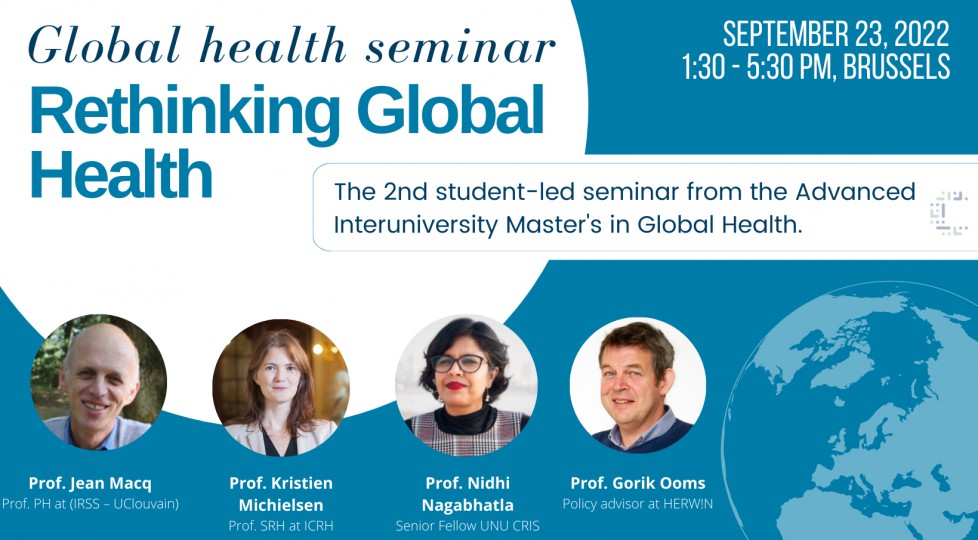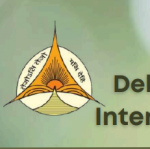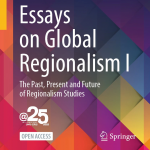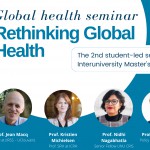Rethinking Global Health: Exploring The Potential of Thinking Differently

UNU CRIS will contribute and actively participate in youth organised event (Master in Global Health) Flanders event : Rethinking Global Health: exploring the potential of thinking differently’ taking place on 23 September 2022, from 1.30pm to 5:30pm CET.
General information about the seminar
Global health and its context have evolved radically in the recent decades with globalization, population growth, and technological evolutions. In an increasingly complex world, global threats of climate change, pandemics and antimicrobial resistance have a multifaceted impact and can exacerbate inequity. This seminar aims to highlight novel approaches that can inspire professionals from different disciplines to understand and address these wicked problems in a different way. Three approaches will be focused on: (1) sustainability in global health, (2) bottom-up thinking in global health and (3) complexity thinking in global health.
Master in Global Health Flanders program is organising 2nd student-led global health seminar in Brussels to provide Global Health experts from different domains and current students and young professionals with a platform to discuss the potential of thinking differently in global health.
Join us in Brussels for this exciting event, please make sure to register before 15.09.2022 through this link: https://www.eventbrite.be/e/rethinking-global-health-tickets-356292369067. For those who will not book a place on time or are unable to attend in person, the event will be fully recorded and shared later.
Some more information on the seminar topic can be found below:
RETHINKING GLOBAL HEALTH: exploring the potential of thinking differently
Global health and its context have evolved radically in recent decades with globalization, population growth, and technological evolutions. In an increasingly complex world, global threats have a multifaceted impact and can exacerbate inequity. This seminar ‘Rethinking Global Health’ aims to highlight novel approaches that can inspire professionals from different disciplines to understand and address these wicked problems.
Sustainability thinking in global health
A common problem with global health interventions is their abundance of good intentions and efforts, but lack of sustainability. How can we ensure that the interventions are sustainable over time and unforeseen side effects are reduced? Looking at them from a justice perspective can be helpful. Who benefits and who is harmed? (distributional justice) What is the power balance between different stakeholders in decision-making? (procedural justice) Are all parties recognized in their particular knowledge and position (recognitional justice)?
Bottom-up thinking in global health
A widely accepted assumption when discussing global health governance is that the lack of a ‘global government structure’ with coercive power is a problem in achieving our goals. International conventions with mandatory goals are ‘the next best thing’. But is it, are they? Shouldn’t we be focussing more on alternative governance methods? Doesn’t a polycentric approach with multiple decision-making centers allow for more innovation, participation, and context-based solutions? Wouldn’t a bottom-up approach with the possibility of policy diffusion be more sustainable and timely?
Complexity thinking in global health
Linear causal thinking, promoted by Western empiricist scientific thinking, is responsible for much of the progress in recent history. Nevertheless, with the rise of global problems, like climate change and the recent pandemic, the importance of system and complexity thinking is becoming increasingly evident. How can we apply these approaches when thinking about global health interventions? How can we take a complex context into account without drowning in it?

In her key note address and intervention as a Panelist , Dr. Nidhi Nagabhatla, UNU-CRIS Senior Research Fellow, will address sustainability thinking from a justice perspective and what this approach entails in global health. Her presentation is titled as ‘The Sustainable Development Riddle: Huge Promises and Gradual Progress: Can it deliver the Equity and Justice Vision ?’ will elaborate on the trends, challenges and opportunities that align to agendas viz Planetary Health, Water and Food Security and Sustainable Future for All’, ‘Leaving no one Behind’ and ‘Build Back Better’.




